In the world of culinary experiences, Shojin Ryori stands as a symbol of simplicity and harmony. Originating in Japan, this traditional Buddhist vegetarian cooking practice embodies the essence of Buddhist philosophy through its emphasis on natural ingredients and mindful preparation.
In a Shojin Ryori cooking experience, participants are immersed in the art of vegetarian cuisine under the guidance of skilled instructors. From selecting the freshest produce to mastering cooking techniques, this immersive experience offers a glimpse into Japan’s rich cultural heritage.
This article serves as a comprehensive guide, providing detailed information on pricing, booking, meeting points, and what to expect during the experience. Whether you are a food enthusiast or someone intrigued by the intersection of spirituality and cuisine, join us on this journey into Shojin Ryori.
Quick Takeaways

- Shojin Ryori classes teach traditional Japanese cuisine rooted in Buddhist principles
- Participants gain a deeper understanding of mindful approach to food
- Vegetarian dishes are prepared using fresh ingredients
- Shojin Ryori offers an enriching journey into Japanese culture
Pricing and Booking Information
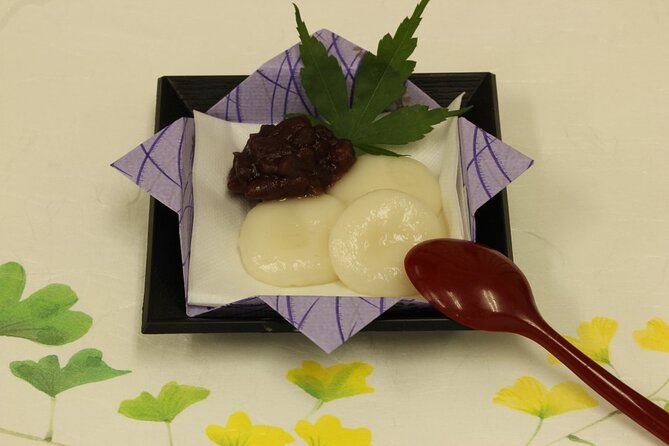
When booking the Shojin Ryori: Buddhist Vegetarian Cooking Experience, travelers can expect to find pricing information that varies based on group size.
These cooking classes offer a unique opportunity to learn about the traditional Japanese cuisine known as Shojin Ryori, which is rooted in Buddhist principles and vegetarian cooking techniques.
The classes are designed to provide insight into the rich cultural heritage of Japan while teaching participants the art of preparing delicious vegetarian dishes.
Whether you’re a novice in the kitchen or an experienced cook, these classes cater to all skill levels.
By enjoying the world of Shojin Ryori, you’ll gain a deeper understanding of the mindful approach to food and its connection to spirituality.
Meeting Point and End Point

The instructor for the Shojin Ryori: Buddhist Vegetarian Cooking Experience can be found at the main entrance of the Kikai Shinko Kaikan building on the 1st floor. This serves as the meeting point for participants. In case you cannot find the instructor, there is a backup option. You can visit True Japan Tour on the B1 floor of the building, specifically in Room# B109. This ensures that even if there are any difficulties in locating the instructor, you will still be able to join the cooking experience. The activity ends back at the meeting point, giving participants a full circle experience. This means that after an enlightening and delicious journey through the world of Shojin Ryori, you will find yourself back where it all began, ready to reflect on the knowledge gained and savor the memories created. It adds a sense of completion to the experience, leaving participants with a feeling of satisfaction and fulfillment.
| Meeting Point | End Point |
|---|---|
| Main Entrance of Kikai Shinko Kaikan Building, 1st floor | Main Entrance of Kikai Shinko Kaikan Building, 1st floor |
What To Expect
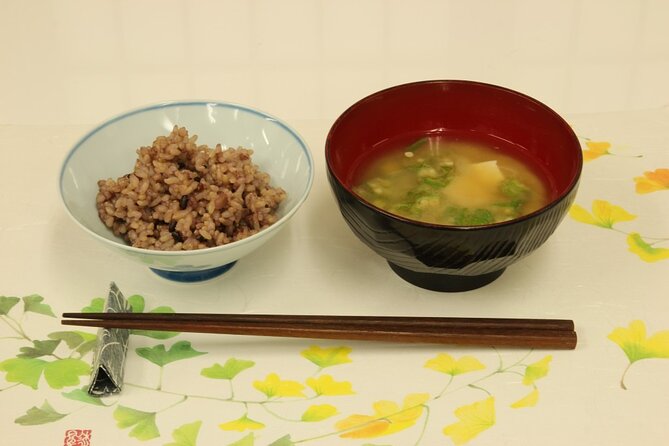
Participants can expect a comprehensive and immersive experience in Shojin Ryori: Buddhist Vegetarian Cooking. Here’s what they can look forward to:
- Discover the cultural significance of Shojin Ryori: Shojin Ryori isn’t just about cooking, it’s deeply rooted in Buddhist traditions and reflects a harmonious relationship with nature. Participants will gain insights into the philosophy and principles behind this ancient form of vegetarian cooking.
- Learn the benefits of vegetarian cooking: Shojin Ryori focuses on using plant-based ingredients that aren’t only delicious but also nourishing for the body and mind. Participants will learn about the health benefits of a vegetarian diet and how it promotes overall well-being.
- Hands-on cooking experience: Get ready to roll up your sleeves and learn the art of Shojin Ryori from expert instructors. Participants will learn to prepare traditional dishes using fresh, seasonal ingredients and master techniques that have been passed down through generations.
- Enjoy a mindful dining experience: After the cooking session, you will have the opportunity to savor their creations in a serene and peaceful setting. They’ll experience the joy of eating mindfully and appreciate the flavors and textures of Shojin Ryori.
Additional Information
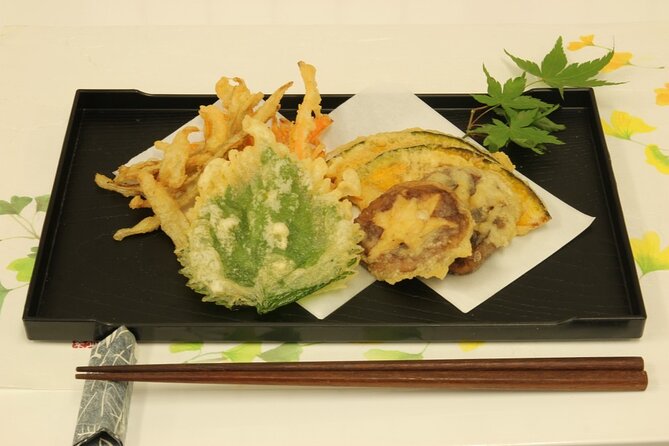
The availability of the Shojin Ryori: Buddhist Vegetarian Cooking Experience can be confirmed within 48 hours of booking. This unique culinary experience offers participants the opportunity to enjoy the ancient tradition of Shojin Ryori, a vegetarian cuisine deeply rooted in Buddhist principles.
The cultural significance of Shojin Ryori lies in its emphasis on simplicity, mindfulness, and gratitude towards nature. To ensure that all participants can fully enjoy the experience, it’s important to inform the organizers of any dietary restrictions or requests in advance.
The program accommodates most travelers and has a maximum capacity of 8 individuals per session, allowing for an intimate and personalized experience. With its focus on vegetarian cooking and spiritual values, Shojin Ryori offers a truly enriching and meaningful journey into the heart of Japanese culture.
Reviews
One traveler’s review gave the Shojin Ryori: Buddhist Vegetarian Cooking Experience a perfect 5-star rating. Here’s why they loved it:
- Authentic Cooking Techniques: The reviewer was impressed by the authenticity of the cooking techniques taught during the experience. They mentioned that the instructors were knowledgeable and passionate about the traditional methods used in Shojin Ryori.
- Delicious Vegetarian Recipes: The reviewer raved about the vegetarian recipes they learned to prepare. They mentioned that the dishes weren’t only healthy but also packed with flavor. They appreciated the focus on using fresh, seasonal ingredients.
- Insight into Buddhist Cuisine: The experience provided the reviewer with a deeper understanding of Buddhist cuisine and its connection to mindfulness and meditation. They found this aspect of the experience to be enlightening and inspiring.
- Memorable Cultural Experience: The reviewer mentioned that the Shojin Ryori: Buddhist Vegetarian Cooking Experience wasn’t just about cooking, but also about immersing oneself in Japanese culture. They enjoyed the serene atmosphere and the opportunity to learn about the spiritual aspects of Buddhist cuisine.
Shojin Ryori Cooking Techniques
During the Shojin Ryori: Buddhist Vegetarian Cooking Experience, participants can learn the authentic cooking techniques used in Shojin Ryori, which emphasize the use of fresh, seasonal ingredients and mindfulness in food preparation.
Shojin Ryori cooking techniques are rooted in the Buddhist dietary restrictions, which prohibit the consumption of meat, fish, and pungent vegetables. Instead, the focus is on utilizing plant-based ingredients, such as tofu, mushrooms, and seasonal vegetables, to create flavorful and nourishing dishes.
The cultural significance of Shojin Ryori lies in its connection to Zen Buddhism, as it’s considered a form of meditation through food. The cooking techniques emphasize simplicity, balance, and harmony, with an emphasis on minimalism and appreciating the natural flavors of each ingredient.
Through learning these techniques, participants can gain a deeper understanding of the Buddhist philosophy and the importance of mindful eating.
Traditional Buddhist Ingredients
A variety of essential ingredients are used in traditional Buddhist cooking. Here are four ingredients commonly found in Shojin ryori recipes:
- Tofu: A staple in Buddhist vegetarian cuisine, tofu is made from soy milk and is rich in protein. It’s used in various forms, such as soft, firm, and dried, to add texture and flavor to dishes.
- Seaweed: Seaweed is another important ingredient in Buddhist cooking, providing essential minerals and umami flavors. It’s used in soups, salads, and as a garnish to enhance the taste of the dishes.
- Mushrooms: Buddhists often use different varieties of mushrooms, such as shiitake, enoki, and king oyster, for their meaty texture and earthy flavors. They’re used in stir-fries, stews, and as a filling for dumplings.
- Soy sauce: A key seasoning in Buddhist cuisine, soy sauce adds a savory and salty taste to dishes. It’s used sparingly to enhance the natural flavors of the ingredients without overpowering them.
Frequently Asked Questions
What Is the Duration of the Shojin Ryori: Buddhist Vegetarian Cooking Experience?
The duration of the Buddhist vegetarian cooking experience is not mentioned in the given information. There is no information about age restrictions for participation in the cooking experience either.
Are There Any Age Restrictions for Participating in the Cooking Experience?
There are no age restrictions for participating in the cooking experience. All individuals, regardless of age, can take part in the activity. However, it is advisable to inform the organizers of any participation requirements or dietary restrictions in advance.
Is the Cooking Experience Suitable for Individuals With No Prior Cooking Experience?
Yes, the cooking experience is suitable for individuals with no prior cooking experience. The instructors provide step-by-step guidance on cooking techniques and explain the cultural significance of each dish.
Will I Be Able to Taste the Dishes That I Cook During the Experience?
Yes, participants in the Shojin Ryori: Buddhist Vegetarian Cooking Experience will have the opportunity to taste the dishes they cook. This adds a delicious and rewarding element to the culinary exploration.
Can I Bring My Own Ingredients or Recipes to Incorporate Into the Cooking Experience?
No, participants cannot bring their own ingredients or recipes to incorporate into the cooking experience. The Shojin Ryori: Buddhist Vegetarian Cooking Experience provides a set menu and ingredients for all participants to ensure a consistent and authentic experience.
The Sum Up
To sum it up, the Shojin Ryori: Buddhist Vegetarian Cooking Experience offers a unique opportunity to delve into the world of traditional Japanese cuisine and Buddhist philosophy.
With its emphasis on simplicity, harmony, and natural ingredients, participants can learn the art of vegetarian cooking under the guidance of skilled instructors.
From pricing and booking information to meeting points and end points, this immersive experience provides a comprehensive guide to exploring the rich cultural heritage of Japan through the lens of Shojin Ryori.

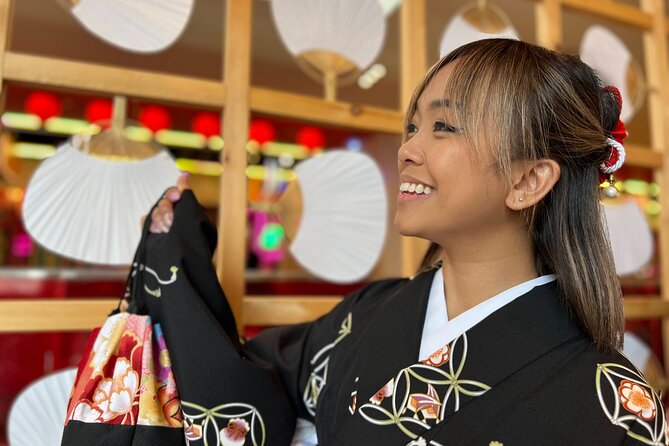
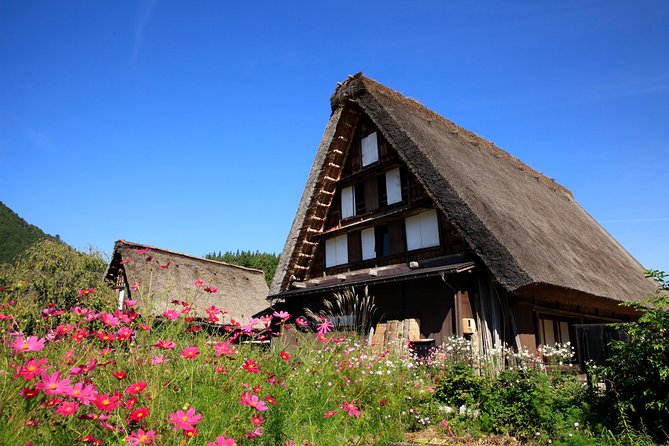
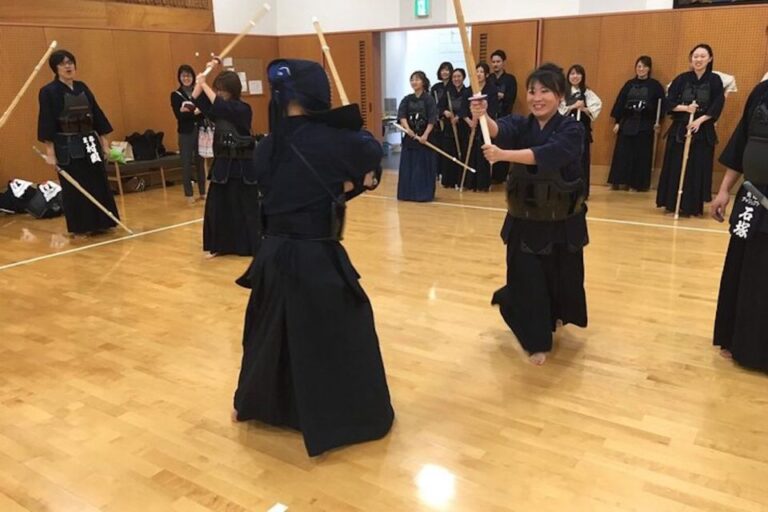

![Blue Cave Experience Diving [Charter System / Boat Holding] I Am Very Satisfied With the Beautiful Quick Takeaways](https://tokyo-top-guide.com/wp-content/uploads/blue-cave-experience-diving-charter-system-boat-holding-i-am-very-satisfied-with-the-beautiful.jpg)